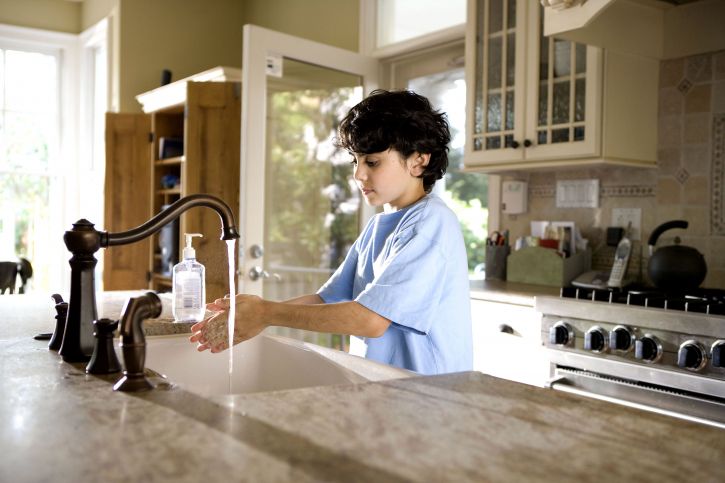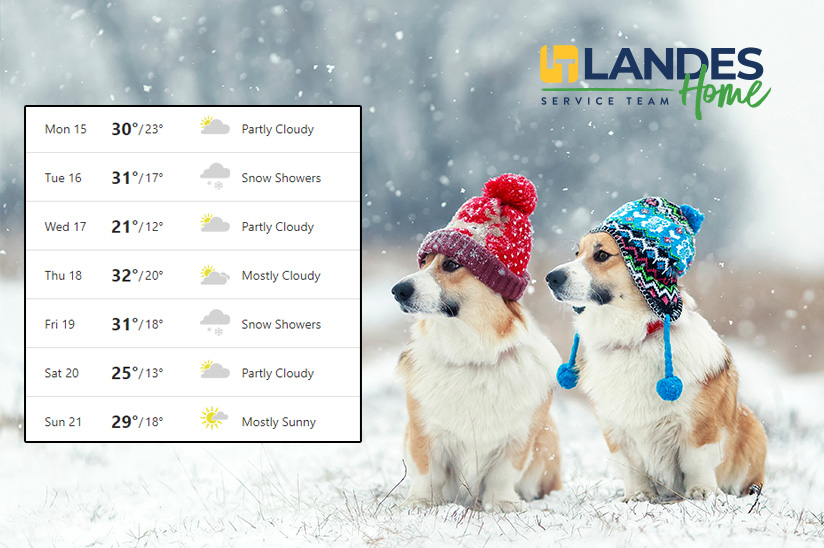Temperatures are going to be low in Bucks and Montgomery Counties this winter! IT Landes…
Choosing a Water Softener: The Basics
The US Geological Survey calculates that 89.8% of American homes are supplied with hard water. Residential water softening systems, often called water softeners; remove calcium, magnesium and other hard minerals from water. Soft water often reacts more effectively with soaps and can help to extend the life of pipes and appliances. Choosing the right water softener may seem tricky, especially if you are not familiar with plumbing. The experienced plumbing service technicians at IT Landes have prepared some tips for homeowners when deciding on a residential water softener.
Sizing a Water Softener
Inside a water softener are chemical magnets called resin beads that attract the hard chemicals in the water. The more resin beads in the unit, the higher its capacity. Water softener capacity is measured in grains removed per gallon—the average hardness of water in the US is 10 grains of hardness per gallon. Because the average person uses 80 gallons of water per day, you can use these numbers to help decide what size and capacity is best for your home based on the number of residents.
Types of Water Softeners
There are three basic types of water softeners based on their regeneration. Regeneration is the time it takes for resin beads to be rinsed of hard minerals so they can continue attracting more. This process takes about two hours.
- Timer Regenerated: These water softeners operate on a timer. Once you set a time, the water softener will regenerate on a fixed schedule no matter how much water you use. These units are typically the least expensive type of water softeners.
- Meter Regenerated: Regeneration is based on the amount of water you use. You can program them with how many grains your softener is, the hardness of your water, and the amount of persons in your home. An advantage is that they only regenerate when they need to so the sodium is not wasted, unlike the timer systems. Meter systems are the most popular among homeowners.
- Manually Regenerated: For these systems, you simply set the unit to regenerate when you want it to. This is ideal for homeowners who use less water or have fewer people in their home.
Concerns about Sodium
Because a strong sodium solution is most often used to rinse the resin beads, homeowners with restrictive diets may be worried about receiving high levels of sodium in their drinking water. However, potassium chloride is another viable option for your water softener. The water softener will operate the same way with potassium chloride as it would with sodium. If this is a concern, be sure to ask your water softener dealer before purchasing it.
If your home is being provided with hard water, it may be time to consider the use of a residential water softening system. Before doing so, make sure you know what size, type, and soft mineral is best suited for your water needs. At IT Landes, we can help select the water softener that is right for you. We will make every effort to handle the job with the utmost professional work quality —including post-work clean up.
Click here or call 215-256-4221 to schedule an appointment. View our current promotions here.
“Trust, Quality, Value…since 1929.”



